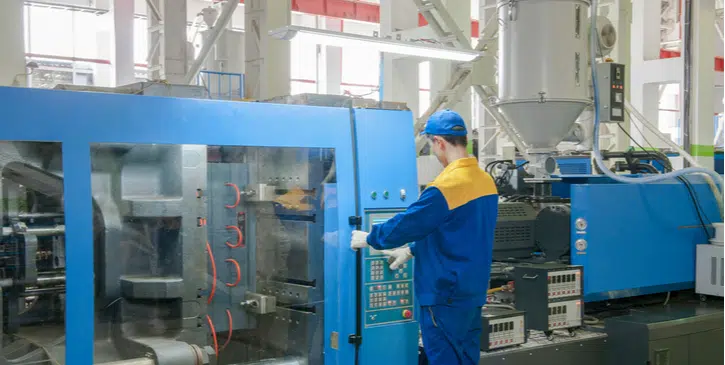How Digitalization is Helping Plastics Manufacturers Meet Environmental Regulations

Governments around the world are introducing increasingly stringent regulations in efforts to decrease pollution and reduce the negative impacts of big industries on the environment.
For plastics manufacturers, this means taking a serious look at how they manage raw materials and energy usage to ensure that they meet all of the requirements.
Every manufacturer aims to produce the high-quality products demanded by consumers while keeping costs down and profits up, and adhering to stricter environmental guidelines adds another layer of challenge. In the UK, for example, a new Plastic Packaging Tax will go into effect on April 1st, 2022. Once launched, plastics manufacturers will be required to pay a tax on any products made with less than 30% recycled plastic and keep records showing exactly what materials have gone into each product.
Other countries are bound to follow suit, and plastics manufacturers around the world must consider how they will respond. This is where digitalization meets environmental regulations – technological tools are available that will enhance material efficiency and improve waste recycling.
What is the Plastic Packaging Tax & its Implications?
While the UK is one of the first to introduce a Plastic Packaging Tax, Spain and Italy will be making similar announcements in January 2022, and other countries will likely follow.
Beginning on April 1, 2022, any business in the UK that produces ten or more tons of plastic packaging per year will be required to pay a tax on all packaging products made with less than 30% recycled plastics. The tax itself will be charged at £200 per ton.
There are a number of different stipulations regarding exactly which types of products are taxable and which are exempt. Still, the bottom line is that just about every plastics manufacturer will be required to track and report specific details about the materials used in their production process. Following guilty-until-proven innocent logic, all plastic packaging produced will be assumed to NOT meet the 30% recycled material requirement unless proven otherwise. This puts the burden of proof on the manufacturer, who will have to find an effective and reliable way to track the exact materials used in their production line.
Many manufacturers already use the required percentage of recycled plastic or would not be averse to increasing their percentage to the acceptable limit. The issue is less about the tax itself and more about traceability and finding an efficient way to track the materials they use so as to demonstrate to tax authorities that limits are being met.
The Challenge
With regulatory changes on the horizon, manufacturers will be asked to:
- Reduce the amount of non-recycled plastic that they use in the production of certain types of plastic packaging
- Provide proof of what their products are composed of
At the same time, these manufacturers are still running a business, so are expected to do the above while still maintaining the expected quality of their products and, hopefully, not impacting greatly on the company’s bottom line.
The challenge manufacturers will face is how to operate at the highest efficiency – using all resources and machines optimally – to produce high-quality output with minimal waste. So what is the best way to do this?
Technology to the Rescue
Luckily for manufacturers, technological tools exist to help them manage raw and recycled material consumption, enabling them to meet environmental regulations and satisfy the authorities, reduce their environmental footprint, win the approval of consumers, and maintain their bottom line.
Real-time Operational Intelligence (RtOI) solutions are increasingly relied upon by manufacturers to provide them with critical information about their plants’ raw and recycled material consumption and the potential impact recycled material has on the quality of their product.
Traceability of raw material use
Under new regulations, it is mandatory to balance raw and recycled material consumption. Today, many manufacturers still rely on paper and pen to keep track of the recipes used in production, a process that is both wide open to errors and won’t hold up when new regulations require proof of the ingredients that were used.
To satisfy recycled material requirements, manufacturing managers need the ability to monitor machines, dosing systems, and quality in real-time, as well as the power to act on this information. This shortens the latency between event and corrective action.
An agile RtOI system should enable manufacturers to
- Digitally manage the full recipes of all production runs
- Effectively capture and monitor actual consumption of all materials by physically connecting to the dosing system
- Monitor in real-time production rejects
Real-time Consumption Monitoring
Managing recycled material consumption in real-time is a critical aspect of material management. Manufacturing plants with digitalized recipe management can continually compare each layer of the planned material usage versus what actually happened and closely monitor the percentage of recycled data usage. Real-time consumption monitoring solutions should automatically alert key stakeholders when issues take place and trigger work processes that shorten response time.
Maintain product quality
A top concern of manufacturers is maintaining product quality. As the use of recycled materials increases, there is a higher chance that the quality of the products will decrease if production is not effectively managed and monitored. To ensure the use of recycled raw material does not impact quality and the number of rejects does not increase, it is necessary to find the precise balance between raw and recycled material use. RtOI solutions bridge that gap, triggering alerts about product rejects, enabling quality control managers to immediately attend to the issue and react as necessary.
Full Control of Recycled Data
The real-time holistic data gleaned from digital manufacturing solutions gives all relevant stakeholders the information they need, when they need it, in the format they need it. This enables them to make fast decisions, take prompt action to fix any problems, and ensure that all aspects of the raw and recycled material consumption are digitally stored and recorded. Having a system of alerts for production and processing deviations makes it easier to manage manufacturing in real-time and ensure that the recipe is adhered to, the recycled material efficiently managed, and the quality does not fall.
Having complete control of recycled data, from the type of material, the layers in which it is used, the quantity per product and per layer, and more, ultimately reduces rejected items, further improving operational efficiency and production output.

Changing the way people work in factories
Request a DemoThe Future of Recycled Material Consumption and Management in Manufacturing
Whether due to regulations already in place or in preparation for regulations to come, manufacturing plants will have to adapt the way they manage recycled materials within their shop-floor and increase their reliance on technological solutions to automate and digitalize the management process.
The most non-intrusive way to do that is by integrating a Real-time Operational Intelligence (RtOI) solution to their shop-floor.
RtOI solutions aggregate data in real-time from any machine or tool and continually analyze the data to provide key stakeholders with the relevant decision-ready insights they need to optimize the plants’ overall productivity.
When examining the right RtOI solution for your shop floor, look beyond material waste consumption and choose a solution that provides you with a comprehensive digitalization solution for your entire factory and can be seamlessly integrated without disrupting operations.
To learn how Matics can transform your shop-floor, contact us today!




